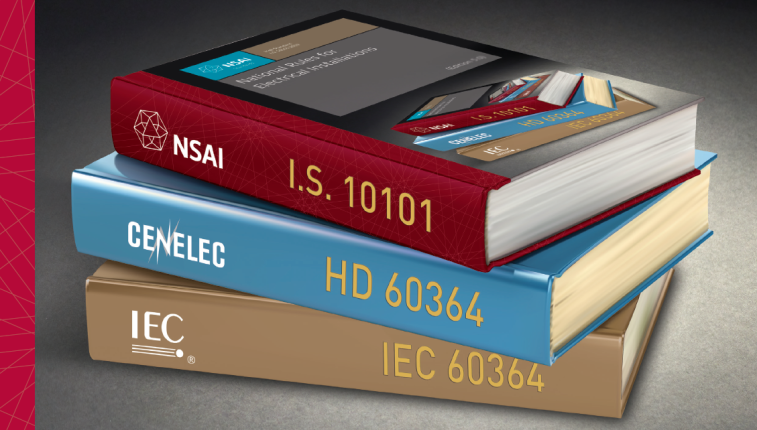Ireland's new National Rules for Electrical Installations (Wiring Rules) have been published by the National Standards Authority of Ireland (NSAI). The document is the first major revision to the standard in over 10 years and is based on internationally agreed standards for safety of electrical installations.
The new standard, also known as I.S. 10101:2020, will replace ET 101:2008, and has been produced by industry experts who sit on the NSAI's Electro Technical Committee (ETC/TC 2) “Electrical Installations.” The standard includes requirements for design and installation of many types of installations, including housing, hospitals, agricultural buildings, caravans, construction sites, industrial premises and swimming pools.
The revision program took two years to complete and included a three-month public consultation from December 2018 to March 2019. Over 600 comments were submitted, and all were considered in detail by the committee.
The National Rules for Electrical Installations are essential for electricians, electrical contractors and designers as they specify the safety requirements for electrical installations in all types of premises in Ireland. The revisions bring requirements in line with recent technical developments and best practice in Europe, including new technologies such as charging of electric vehicles, Solar Photovoltaic systems and guidance on energy efficiencies.
The National Standards Authority of Ireland’s Standards Technical Manager, Yvonne Wylde, said the new document is an essential and invaluable reference point for designers and electrical installers, providing for the safety of electrical installations in homes, businesses, factories and farming communities across the country.
“Some of the key changes proposed in the new rules are that Residual Current Devices (RCDs) will now be required on lighting circuits in domestic premises, and Arc Fault Detection Devices (AFDDs) will be recommended for circuits installed in locations with particular risk, such as in premises with sleeping accommodation; or buildings made of combustible construction materials such as wooden buildings.” said Ms Wylde.
Other changes included are
- revised specifications for cables, which will now be required to meet the minimum rating of class Dca-s2, d2, a2 in accordance with I.S. EN 50575.
- a new set of recommendations on energy management and efficiency,
- provision is made for electric vehicle charging infrastructure and
- there are modified requirements for electrical installations in medical locations.
For details about transition arrangements from ET 101:2008 to I.S. 10101:2020 please refer to the Safe Electric website.
Safe Electric will develop additional resources available to RECs in 2020 to outline the key changes, and what they will mean for electricians. Information on these resources, including roadshows, can be found on the Safe Electric website.
The new standard will be available from March 6th. For further information on how to buy the new standard, click here.
Contact Details
NSAI’s Standards Officer Yvonne Wylde is available for interview. To arrange, please contact:
NSAI’s PR Account Manager, Deirdre Farrelly: 086 8690774 Email: deirdre.farrelly@nsai.ie
Notes to the Editor
Under the Electricity Regulation Act (1999), the Commission for Regulation of Utilities(CRU) is responsible for regulating the activities of electrical contractors with respect to the safety of electrical installations. Safe Electric is the Safety Supervisory Body tasked by the CRU to carry out certification, inspection, and monitoring of electrical works undertaken by Registered Electrical Contractors (RECs).
In terms of standards development, NSAI is responsible for providing a comprehensive set of standards for the electrical industry. In respect of the new National Rules for Electrical Installations, NSAI ETC Technical Committee (TC) 2 is specifically Ireland’s national committee responsible for maintenance and development of these rules.
The rules are based on standards developed internationally and adopted within Europe with some amendments/additions to suit European regulations and installation practices. These European documents form the basis for the development of national wiring rules across Europe. Ireland, through the NSAI national mirror committee (i.e. ETC/TC 2) has had a vote and a say in developing these documents.
[Disclaimer: All reasonable effort was made to ensure that the information on this page was correct at the time of publication. Any views or opinions expressed on this page are not necessarily those of NSAI. NSAI accepts no responsibility or liability howsoever arising from the contents of this publication or any errors, inaccuracies, or omissions in the contents of the information provided therein.]



